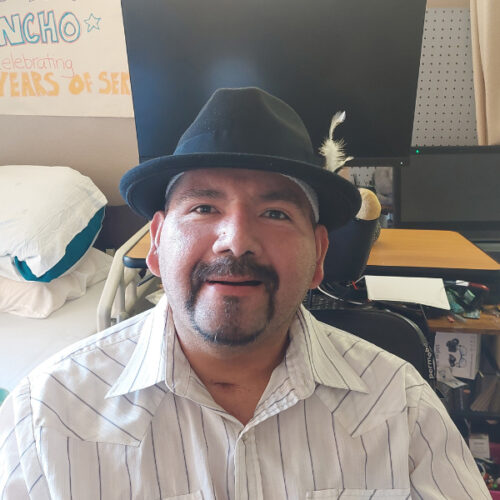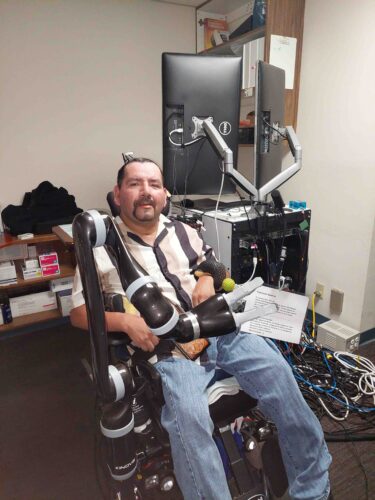Have you ever heard of brain-computer interface (BCI)? A BCI creates direct communication between the brain’s electrical activity and an external device. Simply put, it enables a person to control a machine using only their thoughts. The concept unquestionably sparks excitement and curiosity, but who among us actually knows what it’s like to move a robotic arm using only their mind?
New Wikipedia editor Pancho Ramirez, for one.

After surviving a car accident in 2003, Ramirez experienced a brain-stem stroke which caused paralysis and anarthria (the loss of ability to articulate speech). He’s since taught himself English (his primary language is Spanish), earned his GED, completed a web developer certificate, and in recent years, served as the Vice Chair of the Board of Directors of the nonprofit organization CommunicationFirst.
And when he discovered the application for Wiki Education’s editing course sponsored by the WITH Foundation, Ramirez decided to take on yet another challenge: learning to contribute to Wikipedia.
“I liked knowing that the course focused on disabilities,” said Ramirez, reflecting on his motivation to enroll. “I wanted to learn how to edit articles on this topic.”
Like several of the other course participants, Ramirez brought lived experience to his efforts to improve Wikipedia’s coverage of adult developmental and intellectual disabilities.
“I chose the brain-computer interface article because I’m familiar with the subject,” said Ramirez, who has participated in a BCI study at the University of San Francisco since 2019. “I didn’t think that article was out there in the Wikipedia world, but it is. I was excited to add and edit content.”

Noting the online encyclopedia’s power to shape people’s awareness and understanding of disability healthcare, Ramirez emphasized the importance of maintaining Wikipedia’s accuracy and reliability.
“Everyone should [contribute to] Wikipedia and share their knowledge with the world,” said Ramirez, who enjoyed learning how to improve clarity and fill gaps on Wikipedia.
The experience revealed just how accessible Wikipedia editing can be – even as a new editor, Ramirez was surprised how straightforward it was to enhance articles and add high-quality citations.
But the course offered more than just practical editing skills, Ramirez explained. Throughout the virtual sessions, he gained insight into the encyclopedia itself, including how it operates, its source standards and policies, and its far-reaching, critical role in the global knowledge landscape.
And thanks to the impactful work of WITH course participants like Ramirez, Wikipedia’s disability healthcare content is more complete and inclusive for readers worldwide.
Interested in learning how to add your expertise to Wikipedia? Explore Wiki Education’s upcoming Wiki Scholars & Scientists courses.
